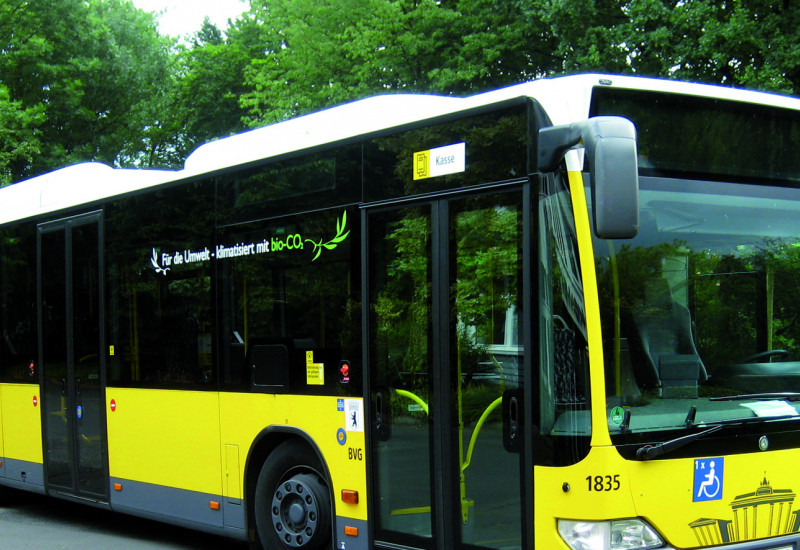Buses are eco-friendly means of transport, nevertheless their climate performance can be increased still further. Today’s mobile air conditioning systems in buses still use the refrigerant tetrafluoroethane (R134a), a greenhouse gas with a 1,430 times higher impact to the climate than carbon dioxide. There is a climate friendly alternative: Some city buses already use CO2 air conditioning systems. read more
Topics | Umweltbundesamt
 Umweltbundesamt
Umweltbundesamt
Search


